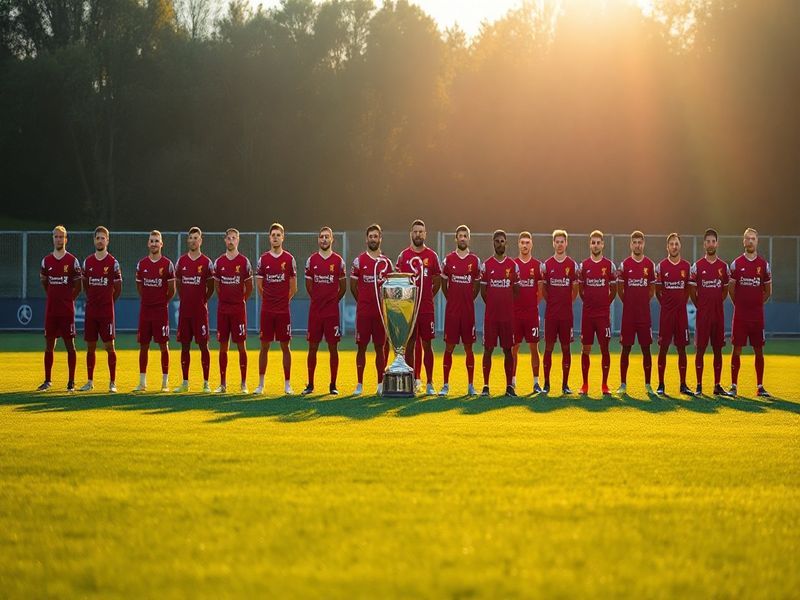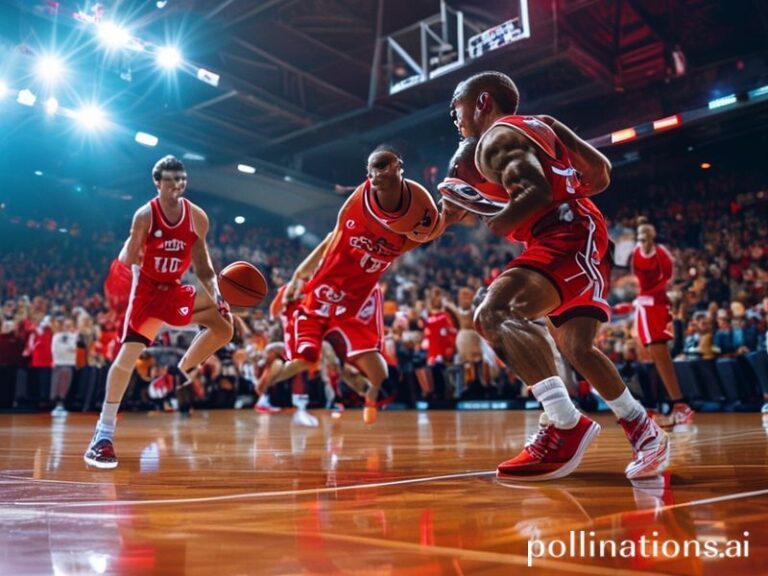liverpool champions league squad
The Red Machine Reboots: Liverpool’s Champions League Squad as Global Metaphor
By Our Man in Every Departure Lounge
Liverpool, England – While the rest of the planet debates whether democracy is clinging to life support or merely on a smoke break, 25 men in matching tracksuits have quietly re-certified themselves as a planetary spectacle. Jürgen Klopp’s latest Champions League squad list—submitted to UEFA like an expense report from the end of the world—is less a football roster than a geopolitical résumé: Senegal’s best centre-back, Egypt’s most bankable export, a Dutch captain who could broker maritime treaties, and a Uruguayan striker whose finishing is more reliable than most central-bank inflation targets.
The international takeaway is blunt: when nothing else seems export-grade from Britain these days (see: sterling, political stability, cheese that melts properly), Liverpool FC still ships excellence at scale. The club’s net spend over the last three summers is roughly what Apple misplaces in loose change each quarter, yet the return on investment looks positively Scandinavian in its social-democratic efficiency. Darwin Núñez alone cost more than the GDP of three Pacific micro-nations, but at least he runs like someone being chased by sovereign debt.
Global fans—now the majority shareholder in football emotion—track these names the way bond traders once tracked Greek yields. In Jakarta, cafés open at 2:45 a.m. so office workers can watch Mohamed Salah translate desert-honed endurance into Anfield miracles. In Lagos, street vendors sell bootleg “Alisson 1” shirts next to knock-off election posters, tacitly acknowledging that clean sheets sometimes outrank clean ballots. And in Kyiv, where Champions League memories are still 2018-tinged, locals note that Virgil van Dijk’s aerial dominance is the only non-NATO air defence they’ve seen work.
Of course, cynicism demands its pound of flesh. The squad list is also a ledger of modern absurdities: a Japanese midfielder (Wataru Endō) whose transfer fee could fund three bullet trains, a Scottish left-back (Andy Robertson) who earns more in a week than Glasgow’s entire public-library budget, and an academy graduate (Trent Alexander-Arnold) whose passing range is now measured in both yards and TikTok shares. Meanwhile, UEFA’s “homegrown” rule—designed to protect local identity—classifies a Belgian born in Antwerp as “locally trained” because he spent three adolescent winters in Kirkby. Somewhere, a cartographer is quietly sobbing into his atlas.
Yet the broader significance is oddly comforting. In a time when global supply chains fracture like cheap headphones, Liverpool’s squad remains a model of just-in-time human logistics. Need a last-minute equaliser? Call upon a Colombian winger (Luis Díaz) who learned counter-attacks in guerrilla-controlled territory. Require defensive composure? Deploy an English defender (Joe Gomez) whose knees have been rebuilt more times than the German coalition. The club’s medical staff, rumored to moonlight for Médecins Sans Frontières, now rank somewhere between Florence Nightingale and duct tape in the international first-aid hierarchy.
The punchline, delivered with trademark Scouse fatalism: none of this guarantees silverware. Europe’s elite are assembling squads like Cold-War arsenals—Real Madrid’s latest galáctico costs more than lunar exploration, Bayern Munich just signed a midfielder who can reportedly recite the Bundesliga tax code in perfect High German. Liverpool’s response is to lean on intangibles: the Kop’s capacity for sonic warfare, Klopp’s teeth-whitened charisma, and the statistical anomaly that scousers handle pressure better than most central banks.
As the group-stage draw looms, remember that these 25 players are not merely athletes; they’re floating exchange rates in human form, their value rising and falling with every nutmeg, every hamstring twinge, every geopolitical sneeze. If the world ends before May, archaeologists will dig up this squad list and assume the Champions League was some kind of cargo cult—and honestly, they won’t be entirely wrong. Until then, the show rolls on, broadcast in 195 countries, sponsored by a Middle Eastern airline and an online gambling conglomerate, proof that even at the edge of apocalypse, capitalism still knows how to book a decent away fixture.
And somewhere on Merseyside, a taxi driver is already muttering, “If we don’t win it this year, we’ll blame the VAR, the government, and probably El Niño.” Which, come to think of it, is as concise a global risk assessment as any.







